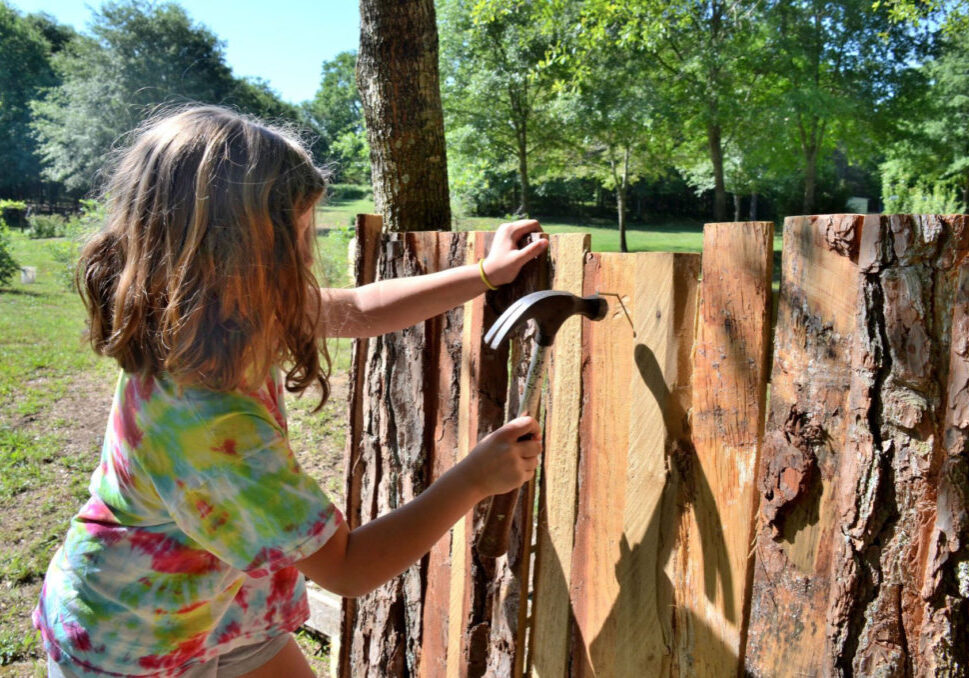It’s the middle of the night and you’re in a deep sleep. You hear a loud cry of “Mommy!” or feel a touch on your arm. At first you’re not sure if this is all part of your dream. Eventually, you wake up and realize your child is frightened and needs you. Then you stumble into her room in a total daze, faced with the challenge of needing to comfort your little one after she’s had a nightmare.
In the midst of this middle-of-the-night drama, it may help to know that childhood nightmares are normal and play a positive role in kids’ emotional growth and coping skills. About half of all young children experience nightmares, especially two-to six-year-olds. Children are particularly prone at this age because this is when they’re developing fears and imagination, and learning the difference between fantasy and reality. Nightmares tend to peak by 10 years of age, and then they usually decrease.

Nightmares are often tied to emotions
Children’s nightmares stem from many different types of experiences that cause emotional responses, such as hearing a scary story, watching a frightening movie, worrying about school, struggling socially, or reacting to a family change or crisis like a new sibling or divorce. Facing new milestones — potty training, moving out of a crib, learning to ride a bike — can also cause bad dreams. Eating too close to bedtime, some medications, and sleep problems can also lead to nightmares. Along with fear, confusion, guilt, disgust and sadness also can trigger nightmares.
Nightmares typically happen in the second half of the night during rapid eye movement (REM) sleep. REM sleep stimulates the parts of the brain used in learning and some scientists believe that dreams are the brain’s effort to find meaning from daily events. This could be beneficial to our children in spite of the temporary scare from a troubling dream.
Nightmares help children work through their emotions
Nightmares help our children work through their emotions around traumatic events, creating a concrete memory that can be more easily processed, filed away, and forgotten. Michael Nadorff, assistant professor of psychology and sleep behavior medicine specialist at Mississippi State University, equates nightmares to having our own exposure therapy to review and confront experiences so we can overcome our fears about them.
Helping our children work through the issues
In addition, our children’s nightmares help us gain insight into their deepest thoughts and concerns. Rosalind Cartwright, Ph.D., professor emeritus of psychology at Rush University in Chicago, says nightmares are like having an internal therapist, helping surface one’s deep-rooted emotions and fears. By connecting with our children after a nightmare, we can help them work through their issues so that they feel better.
Comforting our children in the moment is important so they can express how nightmares make them feel and realize that they’re okay. When they’re upset, go to their bedroom and give them physical contact like a hug or back rub until they calm down. Ask them to talk about the nightmare, but don’t push too hard if they don’t want to discuss it. Comfort them by saying, “I understand your dream must have been scary, but it was not real. Mommy sometimes has bad dreams, too. You’re okay. I am here to comfort you. I love you and you are fine.”
If they want to check under the bed or in the closet for monsters, go along with this exercise. Once they have calmed down, tuck them in with their favorite blanket or stuffed animal and reassure them that you will be nearby if they need you again.
Talk it out when they’re awake
You can continue to address the nightmare the next day by encouraging them to express themselves. Consider getting creative like drawing or painting pictures, journaling, reading stories and discussing them, or acting them out with puppets. Look for patterns in the themes of their nightmares to try to understand what the stressor may be. The most important thing is to encourage your children to talk it out so that they address what’s bothering them while they’re awake.
When do nightmares become a problem?
How do we know when nightmares become a problem? Here are some signs to look out for to make sure your kids aren’t experiencing something more serious:
• Are the nightmares significantly interfering with sleep?
• Are your kids avoiding bedtime because they are worried that they will have a nightmare?
• Are the nightmares getting worse and occurring more frequently?
• Are they impacting your child’s school day and interaction with family and friends?
• Is your child repeatedly waking up with detailed recollections of long, scary dreams that involve threats to their survival, security, and physical well-being?
If you notice these issues persisting, then it’s important to speak to your pediatrician about what is going on. It may be time to explore treatment options like therapy to address stress and anxiety, or a sleep study for a more detailed evaluation.
Posted in: Health & Nutrition, Youth & Teen
Comment Policy: All viewpoints are welcome, but comments should remain relevant. Personal attacks, profanity, and aggressive behavior are not allowed. No spam, advertising, or promoting of products/services. Please, only use your real name and limit the amount of links submitted in your comment.
You Might Also Like...

How To Support a Friend Through Divorce
The first time I attended the wedding of a friend, I knew exactly what to do. I brought a gift, set it on the gift table, and sat on the […]

Teen Centered/Shasta App Lets Teens Find Resources From Their Phones
Pathways to Hope for Children, Shasta County’s child abuse prevention coordinating council, operates the Anderson Teen Center and will soon open a teen center in Redding. With our focus on […]

Tips for Eating Healthy On a Budget
Food for thought: How much does the average American family spend on groceries per month? The national average is around $250 a week for a family of four. How much […]

Creative Play: Let Them Build Forts
When I was eight years old I decided it would be fun to live in a travel trailer. Our family didn’t happen to have one, so I set about building […]




